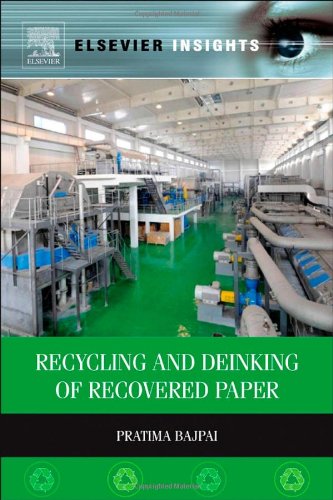

Most ebook files are in PDF format, so you can easily read them using various software such as Foxit Reader or directly on the Google Chrome browser.
Some ebook files are released by publishers in other formats such as .awz, .mobi, .epub, .fb2, etc. You may need to install specific software to read these formats on mobile/PC, such as Calibre.
Please read the tutorial at this link. https://ebooknice.com/page/post?id=faq
We offer FREE conversion to the popular formats you request; however, this may take some time. Therefore, right after payment, please email us, and we will try to provide the service as quickly as possible.
For some exceptional file formats or broken links (if any), please refrain from opening any disputes. Instead, email us first, and we will try to assist within a maximum of 6 hours.
EbookNice Team

Status:
Available5.0
7 reviewsPaper recycling in an increasingly environmentally conscious world is gaining importance. Increased recycling activities are being driven by robust overseas markets as well as domestic demand. Recycled fibers play a very important role today in the global paper industry as a substitute for virgin pulps. Paper recovery rates continue to increase year after year
Recycling technologies have been improved in recent years by advances in pulping, flotation deinking and cleaning/screening, resulting in the quality of paper made from secondary fibres approaching that of virgin paper. The process is a lot more eco-friendly than the virgin-papermaking process, using less energy and natural resources, produce less solid waste and fewer atmospheric emissions, and helps to preserve natural resources and landfill space.
Currently more than half of the paper is produced from recovered papers. Most of them are used to produce brown grades paper and board but for the last two decades, there is a substantial increase in the use of recovered papers to produce, through deinking, white grades such as newsprint, tissue, market pulp.
By using recycled paper, companies can take a significant step toward reducing their overall environmental impacts. This study deals with the scientific and technical advances in recycling and deinking including new developments.